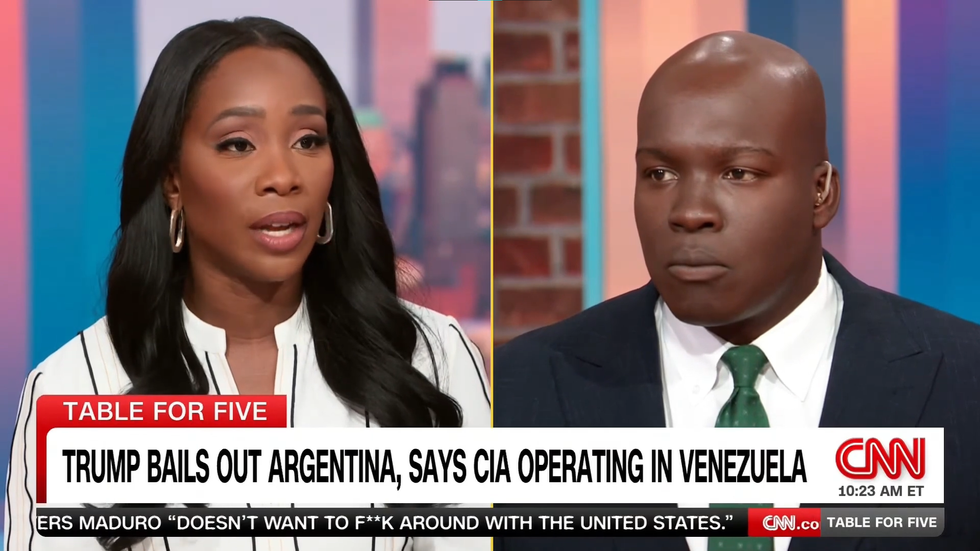URGENT UPDATE: Republican strategist Tim Parrish faced tough questions on Saturday as he struggled to defend President Donald Trump’s controversial military strikes against alleged drug trafficking boats. During a heated discussion on CNN’s “Table for Five,” Parrish was confronted by host Abby Phillip with facts that challenge the rationale behind the Trump administration’s aggressive actions.
Trump recently intensified military operations, announcing that six individuals were killed following a strike on a vessel in the Caribbean Sea allegedly linked to drug trafficking. This marks a significant escalation in Trump’s campaign against drug cartels, which he designated as foreign terrorists through an executive order. Critics, however, have condemned these strikes as unlawful killings, raising questions about the justification for such violent measures.
Phillip pointed out that while Trump claims to be waging war against the cartels, the overwhelming source of fentanyl—one of the leading causes of overdose deaths in the United States—primarily comes from Mexico. “If Trump is saying we are in a war against the cartels to stop drug trafficking, that war will be with the Mexican cartels, not with fishermen coming on boats out of Venezuela,” she stated.
Parrish attempted to deflect Phillip’s inquiries, insisting that Americans were not importing drugs into South America by boat. He highlighted that the situation on the Mexican border is different, where special forces are actively addressing threats from Mexican drug cartels. Yet, Phillip countered, “But we’re not bombing them!” This prompted Parrish to acknowledge the complexities of engaging in military action close to U.S. borders.
The discussion raises critical questions about the legality and morality of the administration’s military strategies. As drug-related violence continues to escalate, the impact on families affected by addiction and overdose is profound. “Any family in this country who’s lost someone to fentanyl would agree with President Trump that we are at war with the cartels,” Parrish argued, but the emotional toll and human impact of these strikes cannot be overlooked.
As the debate around these military actions intensifies, the necessity for transparent justifications from the government becomes all the more pressing. What happens next in this ongoing conflict, and how will it affect the broader landscape of U.S. foreign policy?
Stay tuned for further updates as this story develops.







